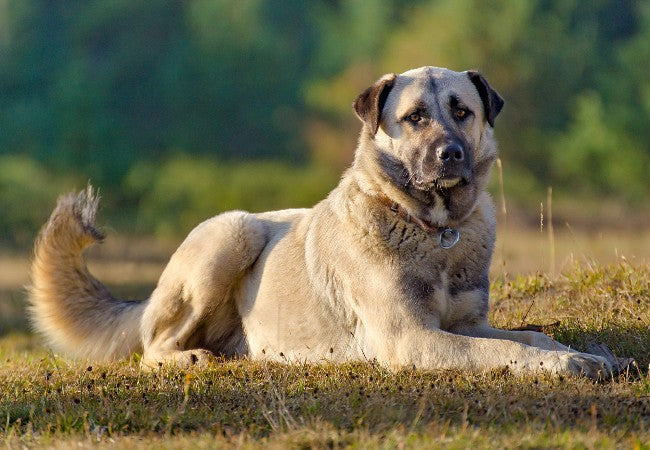Anatolian Shepherd Guide: Health, Training & Care for the Guardian 🐶✨

In this article
Anatolian Shepherd Guide: Health, Training & Care for the Guardian 🐶✨
By Dr. Duncan Houston BVSc
The Anatolian Shepherd is a majestic livestock guardian with roots stretching back thousands of years. Bred in Turkey to protect flocks from predators, this large, sturdy, and intelligent breed is a powerful guardian and—when properly trained and socialized—a loyal family protector. In this guide, you’ll receive a full veterinary deep dive into caring for an Anatolian Shepherd: from health screening to training, grooming, nutrition, and social strategies, enhanced by Ask A Vet.
📜 Origins & Physical Profile
Originating in Anatolia, Turkey, the Anatolian Shepherd descends from ancient shepherd dogs like the Karabash and Kangal, working independently to guard flocks overnight.
🧠 Temperament & Behavior
Anatolians are independent, confident, and territorial—traits shaped by centuries of guarding flocks.
🏡 Living Environment & Exercise
- Space needs: Best suited to large, secure properties. Apartment living is rarely ideal.
- Daily exercise: Around 1–2 hours of activity, including walks, mental enrichment, or free play.
- Mental stimulation: Puzzle toys, training sessions, and watchdog “jobs” help prevent boredom and nuisance barking.
Tip: Log daily activity in Ask A Vet to avoid under- or over-exercising this high-endurance breed.
✂️ Grooming & Coat Care
- Brush weekly to remove loose hair; increase brushing during spring and fall moults.
- Bathe only when necessary—every 8–12 weeks—to preserve coat oils.
- Inspect and clean ears regularly—lop ears can trap moisture and debris.
- Trim nails monthly and brush teeth regularly to prevent dental disease.
Use Ask A Vet to set reminders and record coat, ear, and dental conditions over time.
🍽️ Nutrition & Feeding Strategy
- Feed a high-quality large-breed formula tailored to their activity level—2–3 cups daily, split into two meals.
- Prefer lamb and rice or chicken-based diets to support their digestive needs.
- Use slow-feeders and elevate bowls to minimize bloat risk.
- Track weight monthly using Ask A Vet to prevent obesity—common in declawed or indoor dogs.
🩺 Health Screenings & Common Issues
Anatolian Shepherds are generally healthy (lifespan ~11–13 years
- Hip & Elbow Dysplasia: Moderate risk—screen with X-rays and support with weight control.
- Bloat (GDV): Deep-chested, large breeds are vulnerable—prevent with a feeding strategy.
- Entropion / Ectropion: Eyelid abnormalities seen in many lines—watch for eye irritation.
- Ear Infections: Clean and dry after washing or in rainy weather.
- Obesity & Metabolic Health: Can lead to arthritis or heart issues—prevent with diet and exercise.
- Allergies: Monitor skin and ears—may benefit from hypoallergenic diets.
- Dental Disease: Common—brush and provide chews regularly.
Annual protocol: Hip/elbow X-rays, bloat prevention training, eye and ear checks, weight monitoring, dental exams. Log all via Ask A Vet.
🎓 Training & Socialization
- Early socialization: Start puppy interactions outside 8–16 weeks to reduce wariness.
- Consistency with independence: Positive reinforcement works best—these dogs think for themselves.
- Short sessions: Focused, varied training avoids boredom and encourages retention.
- Recall & boundary training: Must be airtight before off-leash—protective instincts are strong.
Track behavior logs in Ask A Vet to monitor progress or prompt adjustments.
👪 Ideal Owners & Setup
✅ Best for:
- Experienced dog owners are comfortable with protective breeds
- Homes with secure space and consistent routines
- Families that can provide socialization, mental work, and structure
❌ Not for: Apartment dwellers, first-time owners, or homes with non-dog-savvy visitors or pets.
📱 Ask A Vet
- Ask A Vet: Central hub for health logs, reminders, vet chats, and behavior tracking
⭐ Real-World Success — “Tara the Guardian”
Tara, a 3‑year‑old Anatolian, was reactive to strangers and easily bored. Her owners used Ask A Vet to track mood and barking patterns, then we implemented:
- Structured morning walks and scent games
- Boundary training and safe work roles—“alert only” cue
- Social outings timed with mentally focused tasks
- Ear and joint-care logs entered weekly
After six weeks, Tara barked 50% less, her anxiety dropped, and the family reported a calmer, happier home environment.
🧑⚕️ Final Vet Perspective from Dr Duncan Houston
The Anatolian Shepherd is a noble, independent protector—safe when guided with structure, companionship, and careful monitoring. By pairing your care with Ask A Vet tracking, you’ll support their guardian grace while ensuring they flourish physically, mentally, and socially.
Next step: Set up your Anatolian’s profile in Ask A Vet today—record baseline weight, coat, temperament, and join me for a tailored wellness plan that respects their ancient lineage and modern family role.






